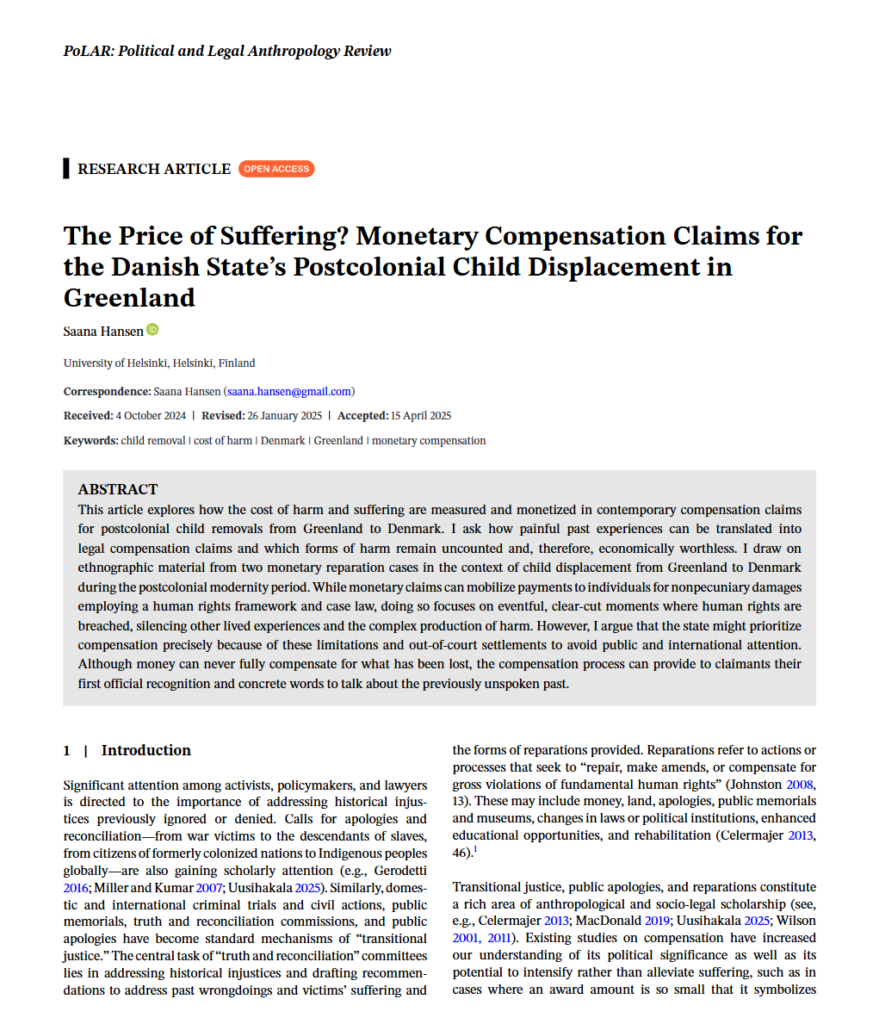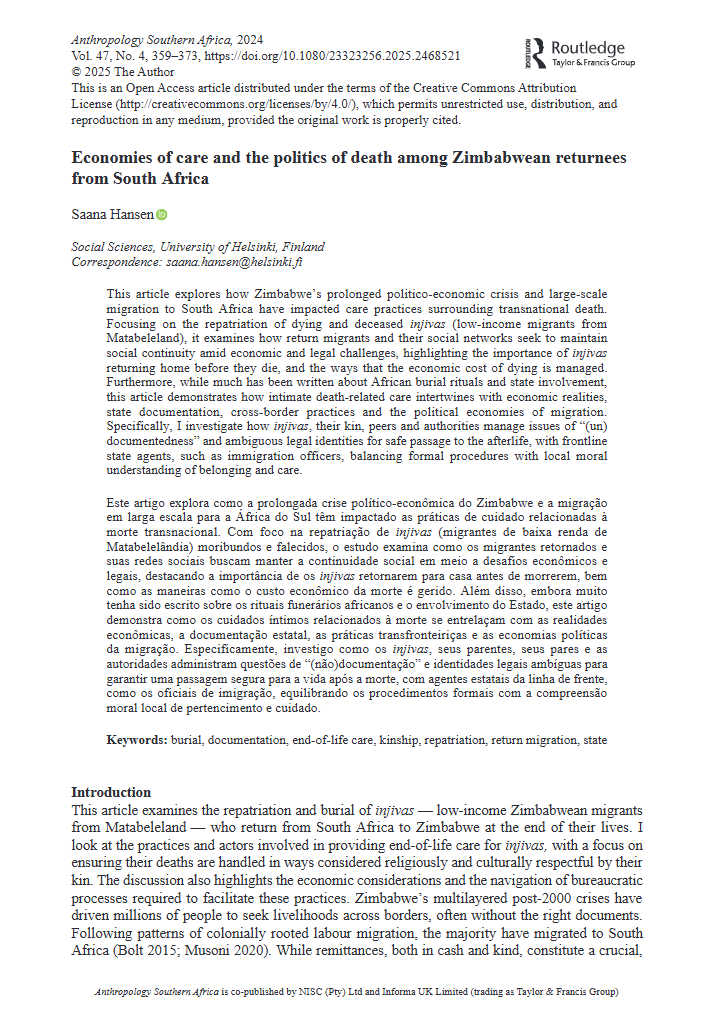Saana Hansen: The Price of Suffering? Monetary Compensation Claims for the Danish State’s Postcolonial Child Displacement in Greenland
PoLAR: Political and Legal Anthropology Review, 48: 2.
This article explores how the cost of harm and suffering are measured and monetized in contemporary compensation claims for postcolonial child removals from Greenland to Denmark. I ask how painful past experiences can be translated into legal compensation claims and which forms of harm remain uncounted and, therefore, economically worthless. I draw on ethnographic material from two monetary reparation cases in the context of child displacement from Greenland to Denmark during the postcolonial modernity period. While monetary claims can mobilize payments to individuals for nonpecuniary damages employing a human rights framework and case law, doing so focuses on eventful, clear-cut moments where human rights are breached, silencing other lived experiences and the complex production of harm. However, I argue that the state might prioritize compensation precisely because of these limitations and out-of-court settlements to avoid public and international attention. Although money can never fully compensate for what has been lost, the compensation process can provide to claimants their first official recognition and concrete words to talk about the previously unspoken past.
Saana Hansen: Economies of care and the politics of death among Zimbabwean returnees from South Africa
Anthropology Southern Africa, 47:4, 359-373.
This article explores how Zimbabwe’s prolonged politico-economic crisis and large-scale migration to South Africa have impacted care practices surrounding transnational death. Focusing on the repatriation of dying and deceased injivas (low-income migrants from Matabeleland), it examines how return migrants and their social networks seek to maintain social continuity amid economic and legal challenges, highlighting the importance of injivas returning home before they die, and the ways that the economic cost of dying is managed. Furthermore, while much has been written about African burial rituals and state involvement, this article demonstrates how intimate death-related care intertwines with economic realities, state documentation, cross-border practices and the political economies of migration. Specifically, I investigate how injivas, their kin, peers and authorities manage issues of “(un) documentedness” and ambiguous legal identities for safe passage to the afterlife, with frontline state agents, such as immigration officers, balancing formal procedures with local moral understanding of belonging and care.

